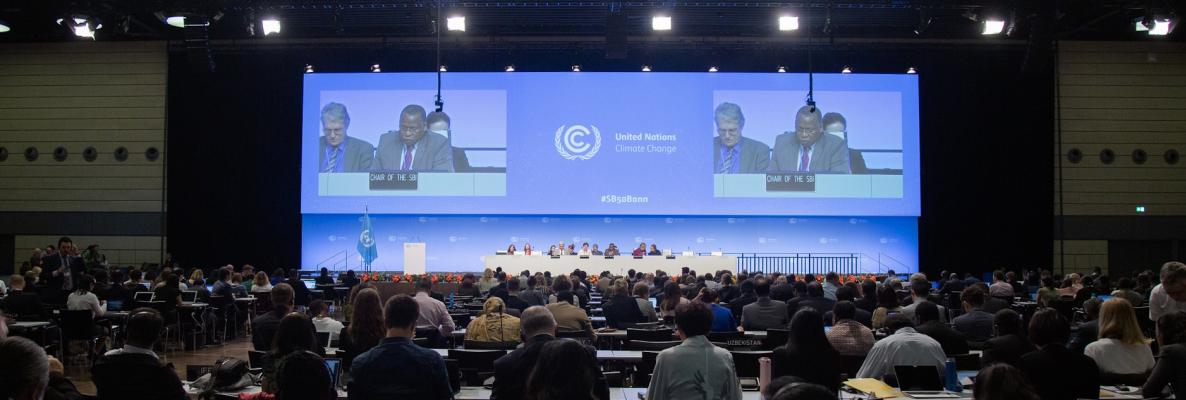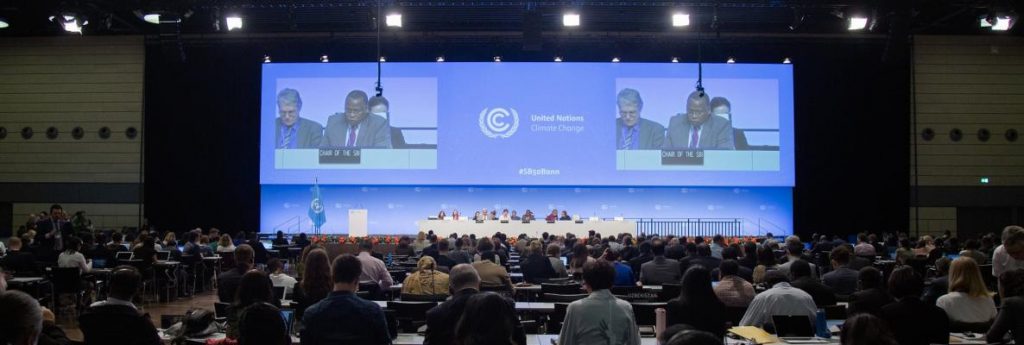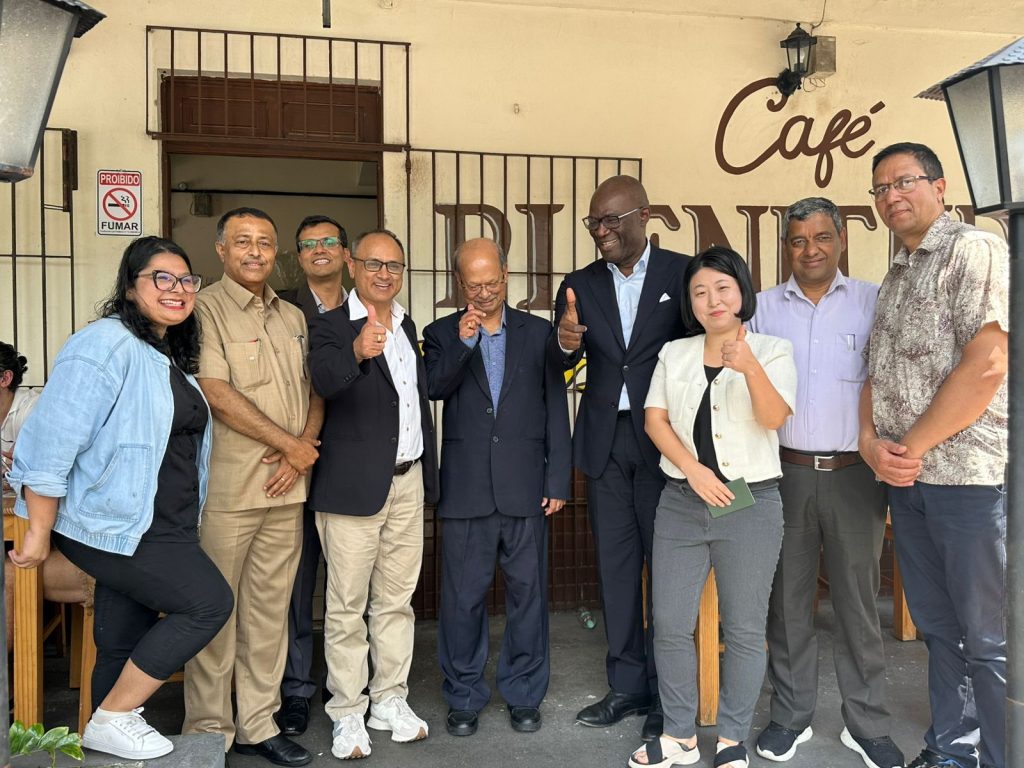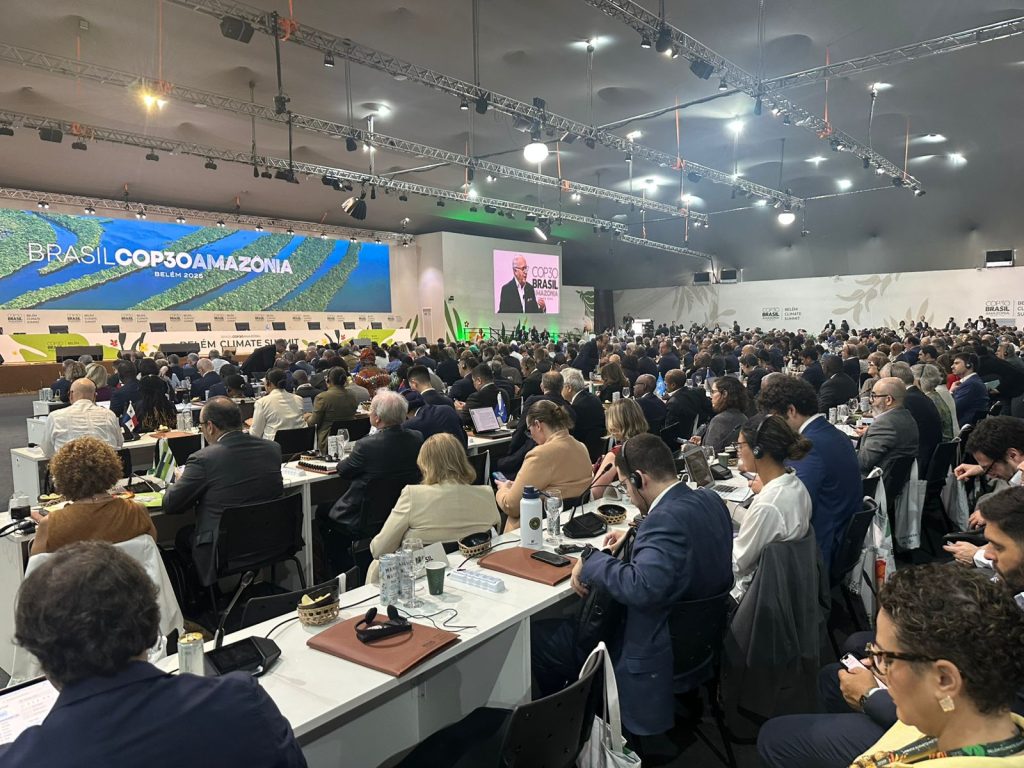Bonn Climate Conference Ends with UN Call to Fully Deliver on Paris Agreement Mandates
- Nature Khabar


The 2019 UN Bonn Climate Change Conference (SB50) wrapped up today after having considered a large number of decisions for adoption at the UN Climate Change Conference in Santiago, Chile at the end of the year (COP25, 2-13 December).
In addition, countries and other stakeholders showcased and shared numerous best practices of effective climate policies and technologies.
“Governments have made progress in several important areas,” said UNFCCC Executive Secretary Patricia Espinosa. “But whilst the mood was constructive, we need to resolve all outstanding issues by COP25 in order to live up to our collective responsibility and ensure that ambition is raised to the extent that the worst impacts of climate change can be avoided.”
While the meeting took place, multiple heat records were broken for June in Europe, including in the conference host country Germany. The heatwave in Europe follows extreme heat episodes in Australia, India, Pakistan and parts of the Middle East this year.
“We can no longer afford incremental progress when tackling climate change – we need deep, transformational and systemic change throughout society which is crucial for a low-emissions, highly-resilient and more sustainable future,” Ms. Espinosa said.
In order achieve the central Paris Agreement goal of holding the global average temperature rise to as close as possible to 1.5 degrees Celsius, greenhouse gas emissions must be reduced 45 per cent by 2030, and climate neutrality achieved by 2050.
Governments in Bonn discussed Article 6 of the Paris Agreement, which would support countries to meet a part of their domestic goals to cut greenhouse gas emissions through the use of so-called “market mechanisms”. Article 6 is one of the few issues left unresolved following that adoption last year of the bulk of the guidelines to make the Paris Agreement operational.
“I urge governments to use the rest of this year to find solutions, allowing solid rules for carbon markets to finally take shape. Businesses want this and they are looking for positive signals from governments that they will do this. They know it’s a good way to reduce emissions globally,” Ms. Espinosa said.
Highlighting the importance of markets for effective climate action, the Executive Secretary noted that this week, investors managing more than USD 34 trillion in assets made a strong call to governments to design and implement policies in line with the Paris Agreement goals.
The UN Climate Change Conference in Bonn is part of a series of meetings this year to drive forward climate action at all levels and work towards reaching the goals of the 2030 Agenda on Sustainable Development.
These meetings include the review of the Sustainable Development Goal SDG13 in July, regional climate weeks in Latin America and the Caribbean and in Asia and the Pacific in August and September, a Climate Action Summit to be convened by the UN Secretary-General on 23 of September, and the UN Climate Change Conference COP25 in Chile in December.
Executive Secretary Espinosa urged Party leaders to take advantage of all opportunities in 2019 to continue making progress.
“People are demanding results—whether that’s online or in the streets—and we must show we are taking responsibility. The Paris Agreement is clear: this is our job. We have the mandate to do this. We must deliver.”
Specific highlights and outcomes of SB50
9 developing countries showcased action to curb and reduce greenhouse gas emissions before 2020. This took place at an event known as the Facilitative Sharing of Views (FSV).
19 developed countries presented their climate actions in a key session on transparency known as Multilateral Assessment. The session showed how climate actions are improving as countries integrate lessons learned from previous policy cycles.
A new work programme on adaptation was agreed, to be adopted at COP25. The work programme integrates indigenous knowledge both for mitigation and adaptation and addresses the specific vulnerability of indigenous peoples.
Governments considered how to improve capacity-building arrangements for developing countries.
A Technical Expert Meeting on Adaptation focused on adaptation finance, and convened leading authorities on adaptation and finance to exchange ideas and innovative case studies.
SB50 saw the inaugural meeting of the Facilitative Working Group of the Local Communities and Indigenous Peoples Platform and agreement on a related work programme.
Governments agreed on the next biannual budget for the UNFCCC process.
The “Katowice Committee of Experts on the Impacts of the Implementation of Response Measures (KCI)” held its first meeting.
Under the “Koronivia Joint Work on Agriculture”, governments considered agriculture as the foundation of human existence and also of agriculture being very vulnerable to climate change impacts.
Experts highlighted ways in which off-grid and decentralized energy solutions can be deployed for smart energy and water use in the “agri-food chain.”
Several gender-related events boosted gender-responsive climate policy and took forward the landmark 2017 Gender Action Plan.
Governments agreed a draft decision to be adopted at COP25 to strengthen education, awareness and public engagement under the UNFCCC
Source : UNFCCC




Feedback